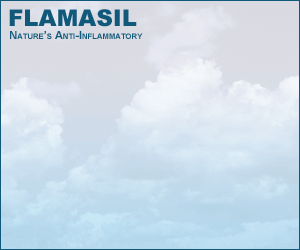



Natural Remedies & Alternatives.
Resveratrol Study
Resveratrol, a chemical compound found in some foods and drinks many of us already consume. An antioxidant of the group known as polyphenols, resveratrol is plentiful in the skins and peels of grapes, berries and certain other fruits. It is found in both white and red wine, but in much greater quantity in red varieties. Resveratrol in common with other polyphenols, was found to be a strong topoisomerase inhibitor, sharing similarities to chemotherapeutic anticancer drugs, such as etoposide and doxorubicin
Multiple studies, all on mice, have shown that resveratrol may have a number of heart-healthy benefits, such as preventing damage to blood vessels, decreasing clots, lowering cholesterol, hindering inflammation and warding off stroke. But some of the most intriguing research is focused on its potential as a general anti-aging agent.
Recent research seems to confirm the theory that, by stimulating the cellular proteins known as sirtuins, can promote longer cell life in the body. Researchers had previously found that resveratrol, among other natural and synthetic compounds, appeared to stimulate the proteins. But they did not know exactly how it did so or how to incorporate the compound into potential anti-aging treatments.
Led by Dr. David Sinclair of Harvard Medical School, a member of the team that originally discovered resveratrol's effect on sirtuins in 2003, observed that the compound stimulated the proteins directly. Specifically, resveratrol appears to help increase the activity of mitochondria, which produces energy within cells, potentially extending their lives.
Other research into resveratrol's benefits continues to gain attention from a hopeful public. A recent conference held by the University of Leicester in Britain featured 65 separate presentations on such topics as the compound's potential to reduce tumor development and how its wider use could cut cases of bowel cancer nearly in half. Here's what else we've discovered about resveratrol lately: Michael Nicholl, an assistant professor of surgical oncology at the University of Missouri School of Medicine, recently published studies showing that resveratrol can boost the effect of radiation treatment on prostate tumor cells in a laboratory setting, thereby increasing the likelihood of a patient's full recovery from even the most aggressive cases of the disease.
Other studies have noted that resveratrol made tumor cells more susceptible to chemotherapy and we wanted to see if it had the same effect for radiation therapy," Nicholl said in a statement. Prostate tumors contain low levels of the proteins perforin and granzyme B, which can kill diseased cells. When Nicholl's team introduced resveratrol into the tumors, it increased the proteins' activity and enabled radiation to destroy up to 97 percent of cancer cells. "We were able to kill many more tumor cells when compared with radiation alone," he said in his statement.
A study from Henry Ford Hospital in Detroit found that healthy rats were less likely to suffer the effects of noise-induced hearing loss when they were given resveratrol before long-term exposure to loud noise. The research may have even more extensive implications. "Our study focuses on resveratrol and its effect on bioinflammation, the body’s response to injury and something that is believed to be the cause of many other health problems, including Alzheimer's disease and cancer," lead author
Michael Seidman, director of the Division of Otologic/Neurotologic Surgery at the hospital, said in a statement. "Resveratrol is a very powerful chemical that seems to protect against the body’s inflammatory process as it relates to aging, cognition and hearing loss."
Most of what we know about the heart-healthy benefits of resveratrol comes from animal studies. But some of these results have been duplicated in small human trials. For example, in 2010 a group of men and women were given 30, 90 or 270 mg. of resveratrol at weekly intervals. After taking the supplement they showed a pretty big improvement in endothelial function. It also helped increase blood flow. These are two very important factors when it comes to your heart health.In another study obese men were given 150 mg. of resveratrol for 30 days.
At the end of the study glucose levels, triglycerides, blood pressure and markers of inflammation were all reduced while taking resveratrol. Resveratrol may even help in our fight against cancer. One small human trial showed 500 to 1000 mg. of resveratrol daily reduced tumor cell growth by 5% in colon cancer patients.
Additional Articles of Interest:
Wine and Dine Your Way to Good Health
References
Wong RH, et al. Acute resveratrol supplementation improves flow-mediated dilatation in overweight/obese individuals with mildly elevated blood pressure.
Nutr Metab Cardiovasc Dis. 2011 Nov; 21(11):851-6. Epub 2010 Jul 31.Timmers S, et al. Calorie restriction-like effects of 30 days of resveratrol supplementation on energy metabolism and metabolic profile in obese humans. Cell Metab. 2011 Nov 2;14(5):612-22.Patel KR, et al. Clinical pharmacology of resveratrol and its metabolites in colorectal cancer patients. Cancer Res. 2010 Oct 1;70(19):7392-9. Epub 2010 Sep 14.









